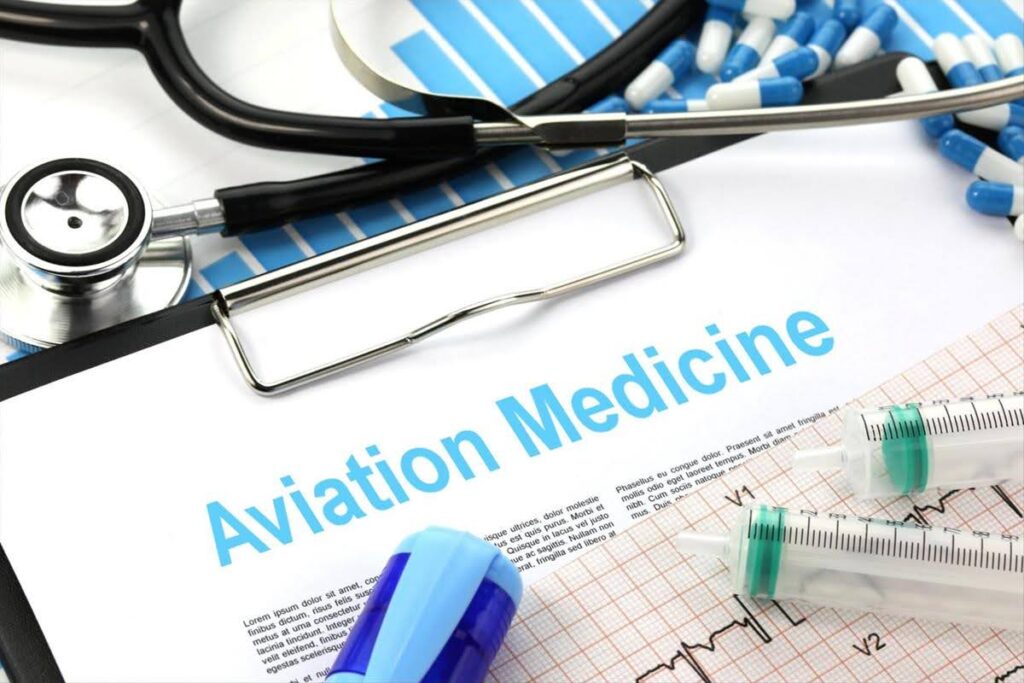If you want to become a pilot or already are an aviator and want to fulfill your dream, you likely came across aviation medical certificates. Far from being mere paper qualifications, these certificates are an essential component of making sure you will be in a position to fly an aircraft. Whether you’re flying an aviation model like a Cessna 172 or an aircraft model as complex as a Boeing 737, your health needs to be up to par. But what exactly is implied when it comes to deposits and how can a candidate best prepare for it? Let’s break it down.
First of all, you should remember that the aviation medical certificates are divided into three classes in accordance with the type of the planned flight activity. If you plan to get a commercial pilot’s license, then you’ll need to obtain a first-class certificate – this one has the highest standards. A second-class certificate is issued to those flying for hire but not as AT Pilots, and third-class certificate is for Private Pilots. As if the abuse of drugs is not enough, each certificate has its own medical requirement. The first class exam is even much on your heart, eyes and ear.
Perhaps you are asking yourself now how to meet all these in full to the latter question we turn as follows. First of all, you will have to pass a physical examination by an FAA authorized Aviation Medical Examiner (AME). Get ready for an eye exam to check that you do not have any shortsightedness nor perspicacity that does not meet those legal twenty-twenty standard vision necessities. This will also include a hearing test, blood pressure checks, medical history among others. Epilepsy could be among the disqualifying conditions, other than bipolar disorder or uncontrolled diabetes. However, depending on the specificity of the other conditions, they can be waived with further examination, so the answer is not a definite ‘no’ if you have medical conditions that could be a concern.
For preparation the best approach is to tell the truth and get prepared. This could simply mean to not have too much coffee before the examination or anything else that jacks up your blood pressure. If you require them, bring any corrective lenses or hearing aids with you. If you have ever suffered from any ailment in your life, it’s important that you present all your medical history to your examiner. This is particularly important when the medical condition may require a special issuance of med or a waiver.
In order to sustain one’s career within aviation, it is vital that a person keeps his certificate current. First class certificates need to be renewed every twelve months for any pilot below the age of forty and every six months for any pilot with an age of forty years and above. If you’re flying an aircraft model like an Airbus A320, these regular renewals become routine, but they’re just as important for anyone flying smaller planes. Renew your certification as soon as possible, because it will be the only way to keep flying.
In conclusion, therefore, applicants and holders of aviation medical certificates are not as out of reach than most people would assume. Basically, the important aspects to focus on are your own health and preparation for the exam; if you are motivated to take good care of yourself and you study diligently, you are guaranteed to ace that exam. Just remember, whether you’re flying a state-of-the-art aviation model or a standard training aircraft model, your health is the number one priority.
FAQs:
1. What are the three classes of aviation medical certificates?
Aviation medical certificates that are issued in three different classes, the first, second and third. First-class is for airline transport pilots, second-class is for commercial pilots and third one is for private pilots.
2. What if I wear glasses, am I still able to pass the medical exam?
Yes, so long as any visual impairment can be corrected to 20/20 or better with lenses, the individual is entitled to any class of medical certificate anticipated for aviation.
3. If you have any medical condition, what happens ?
It depends on the condition. Many disqualifying conditions can be referred for potential waiver or special issuance, some your doctor may not have informed you about.
4. How frequently should I enroll for a renewal of my certificate?
First class certificates must be renewed every 6-12 months of their age while the second and third class certificates can be renewed after longer periods.
5. What should I carry with me to the medical exam?
Bring your glasses or hearing aid and any records which may provide a better understanding of previous illnesses.
6. What would lead to the disqualification of my application for a certificate?
Any prior disorder that may still require treatment – including epilepsy, bipolar disorder, or uncontrolled diabetes – may be a disqualifier, although no two cases are judged alike by the FAA.



